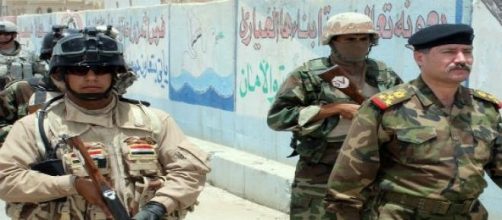Sunday saw the news start to break, now the operation is in full swing. Iraqi troops have launched a Military offensive against the so-called Islamic State in a bid to re-capture Tikrit, the hometown of former dictator Saddam Hussein. The city lies 150km north of the capital of Baghdad and has become a stronghold for IS forces. In the region of 25,000 Iraqi troops are being supported by both Shia militia fighters and Sunni tribal fighters that oppose IS. The move to retake Tikrit is the first sign of fight by the country after the retreats and humiliation the army faced during the summer of 2014.
If the offensive proves successful, then it will open the doors to the main objective for Iraq, retaking the country’s second city, Mosul.
However, the troops face an uphill battle before they can begin to think about a fight for Mosul. In fact, the real question at this point becomes, what triggered the decision to attack IS on the ground and what are the outcomes going forward? One thing appears to be a certainty, failure is not an option. The decision to launch the offensive has come following a change in leadership in Iraq, Haider al-Abadi was designated by President Fuad Masum to succeed Nouri al-Maliki as Prime Minister. He was approved by parliament in September 2014 and has since made a very significant promise: to retake the territories lost in the summer to IS, without taking revenge on the local citizens of the regions.
It is an important statement and one that may encourage those currently under IS control to aid Iraqi troops in their mission.
Perhaps the most interesting aspect of the offensive however, is the fact that according to the US, they are in no way involved in the ground operation. Reports from the Pentagon appeared to suggest that they had in fact been caught off guard by the Iraqi offensive.
Furthermore, Colonel Steve Warren was quick to highlight that they will not be providing any support, on the ground or in the air, for the simple reason that “the Iraqis didn’t request our support.” While this may strike many as unusual, there is an even more surprising aspect to the offensive launched on Sunday.
It is the first time in recent history that the move is backed by both the US and Iran.
While the Pentagon stated that the US coalition is not involved in the operation itself, it is supporting the move to retake Tikrit. Despite the fact that the US and Iran have spent the majority of the past 20 years on less than friendly terms to put it mildly. While the US are not involved, Iran is not only supporting the move, it is providing assistance on the ground through the commander of the Iranian Revolutionary Guards, Gen Soleimani. He has ensured that pro-Iranian Shia militia mobilise in the fight against IS. It is one of the rare occasions where the US and Iran share the common goal of strengthening Iraq’s government as much as possible.
With the operation now underway with support from both the US and Iran, Iraq has a strong shoulder to rest on in case of emergency.
However, there is no doubt that in order for Iraqi troops to succeed and ultimately be able to move onto their true objective of Mosul, the promise made by al-Abadi will be key. How much control will he ultimately have over his troops and more importantly, the Shia militia, to ensure that the Sunni civilians present in the territories will in fact be protected once the region is back under Iraqi control? Only time will give us an answer, but that answer could well be the key to unlocking the prison IS has built in northern Iraq.

